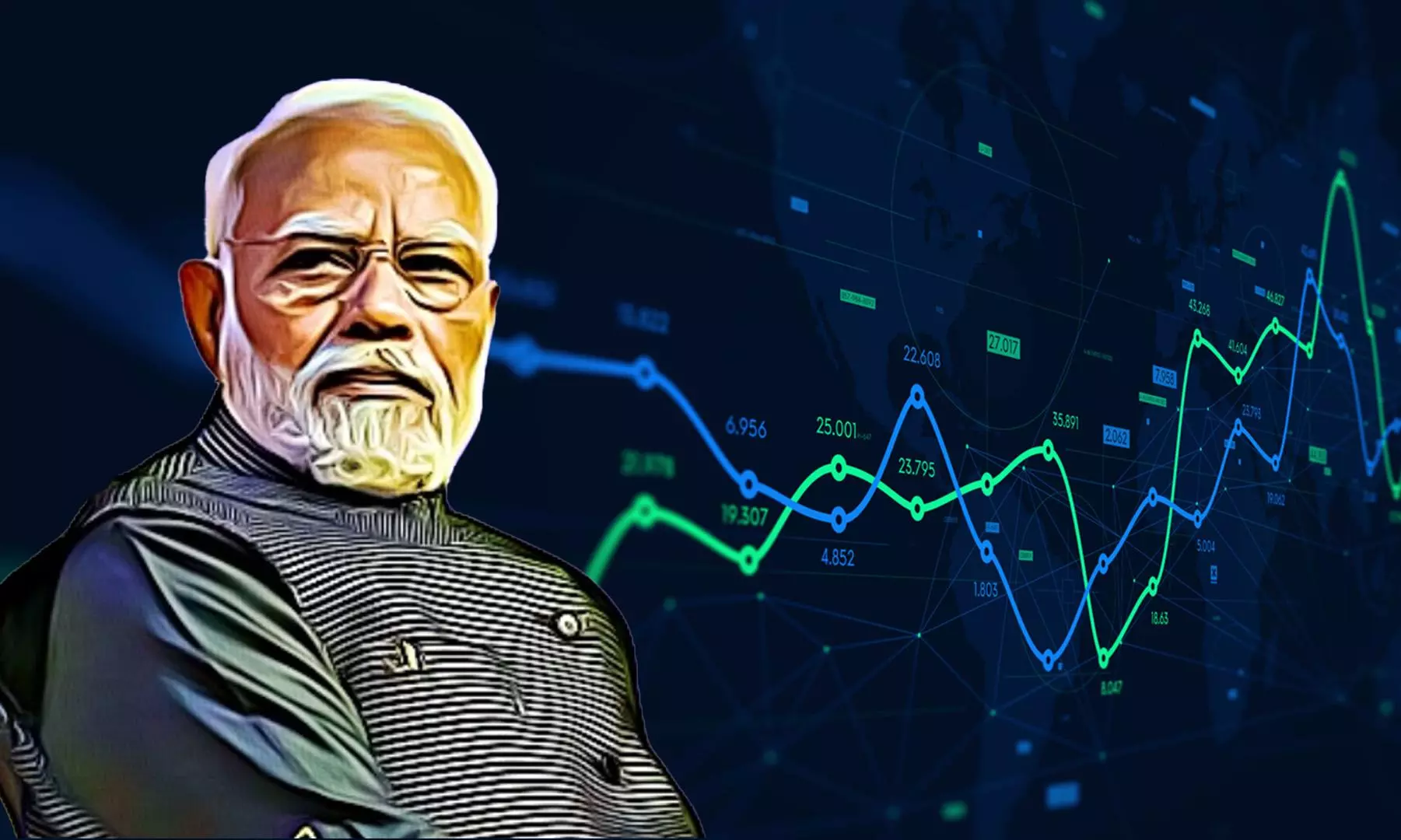
- Home
- India
- World
- Premium
- THE FEDERAL SPECIAL
- Analysis
- States
- Perspective
- Videos
- Sports
- Education
- Entertainment
- Elections
- Features
- Health
- Business
- Series
- In memoriam: Sheikh Mujibur Rahman
- Bishnoi's Men
- NEET TANGLE
- Economy Series
- Earth Day
- Kashmir’s Frozen Turbulence
- India@75
- The legend of Ramjanmabhoomi
- Liberalisation@30
- How to tame a dragon
- Celebrating biodiversity
- Farm Matters
- 50 days of solitude
- Bringing Migrants Home
- Budget 2020
- Jharkhand Votes
- The Federal Investigates
- The Federal Impact
- Vanishing Sand
- Gandhi @ 150
- Andhra Today
- Field report
- Operation Gulmarg
- Pandemic @1 Mn in India
- The Federal Year-End
- The Zero Year
- Science
- Brand studio
- Newsletter
- Elections 2024
- Events
- Home
- IndiaIndia
- World
- Analysis
- StatesStates
- PerspectivePerspective
- VideosVideos
- Sports
- Education
- Entertainment
- ElectionsElections
- Features
- Health
- BusinessBusiness
- Premium
- Loading...
Premium - Events

The brokerage CLSA belongs to CITIC Group, formerly China International Trust Investment Corporation, a financial conglomerate with strong ties to Chinese govt
Brokerage CLSA had dubbed 54 listed companies the 'Modi stocks'. Their defining feature is that these stocks' prices have soared over the past six months by an average of 50 per cent, surpassing, by far, the rise of 13 per cent in the index of 50 stocks on the National Stock Exchange (NSE), called the Nifty.
It has forecast good fortune for these stocks in case the BJP is elected to a third term.
Is this merely a clever marketing ploy by the brokerage, comparable to Amul’s periodic advertisements that grab attention by riffing off headlines currently making waves? Or does this amount to interference in India’s economy and polity by a Chinese entity?
CLSA ownership
There was a time when CLSA used to belong to a venerable French financial group. Right now, it belongs to the CITIC Group, formerly known as the China International Trust Investment Corporation, a Chinese financial conglomerate with strong ties to the Chinese government.
By presenting a certain number of companies as being positioned to do exceptionally well in case the Modi government gets a third term in office, the brokerage suggests there is a bias of state policy towards certain companies, which leaves other companies out of favour.
Is the brokerage suggesting that the Modi government, instead of offering business a level playing field, plays favourites among India’s corporate giants?
If, in its defence, the brokerage were to say that it only seeks to highlight that the Modi government’s infrastructure thrust is favourable to some companies in the infrastructure space, it finds itself in another uncomfortable corner.
Whose job is it?
By implying that these so-called Modi stocks’ favourable trajectory depends on the Modi government returning for a third term, the brokerage is essentially saying that the Opposition INDIA alliance, which is the one that would hold office in the eventuality of there being no third term for the Modi government, would be inimical to infrastructure development.
Is it the job of a mere brokerage, that, too, a foreign brokerage owned by the government of a hostile power, to pass judgment on the policy preferences of Indian political formations?
The core of the INDIA alliance is constituted by the Congress and its allies. The Congress had headed the predecessor United Progressive Alliance government.
UPA's performance
The UPA government had overseen a massive surge in India’s infrastructure development, ranging from upgradation of the Delhi and Mumbai airports to massive spread of mobile telephony – from less than 2 per cent of the rural population having a mobile phone to more than 50 per cent of the rural population having a mobile phone by 2011, when the scam allegations dragged the sector into a quagmire.
Policies such as ultramega power projects rapidly scaled up India’s power generation capacity, outstripping local coal supply, necessitating import of coal.
The percentage of gross fixed capital formation to GDP stood in the mid-thirties for most of the UPA’s tenure. It dipped below 30 per cent in the Modi era and has not crossed that threshold since.
To suggest that the Modi government is pro-investment while the Opposition is not, is electoral propaganda, and false propaganda at that. Should a foreign-owned brokerage be indulging in election propaganda?
Pro-market ideologies
About half the so-called Modi stocks are public sector enterprises. The notion that the Modi government is ideologically pro-public sector goes against the long-held view of the BJP, and pro-market ideologues that the Congress is statist and socialist, while the BJP is pro-market.
Is CLSA trying its hand at revising the ideological positions of India’s political parties? Or is it drawing attention to the failure of the private sector to invest with any degree of enthusiasm during the Modi years?
Public sector companies have been in visible investment action, true. But that is thanks to the failure of the government to institute a viable policy to draw in the private sector into infrastructure investment and rely solely on state funding to boost infrastructure.
Was private sector investment in the infrastructure feasible while the banks were recovering from a bad build-up of non-performing assets? If policy had created a market for debt, private companies could issue bonds to invest in the infrastructure, instead of relying on bank loans to build infrastructure. If India still does not have a functioning market for corporate debt, blame policy failure.
Chinese model
By seeming to endorse a public enterprise-driven infrastructure drive, is the brokerage suggesting that Indians should see a Chinese model of state-led development as being preferable to an aggressive role for the private sector in taking the Indian nation forward?
Suppose investors do buy into the thesis that there is indeed a select group of Modi stocks that stand to gain from a third term for the Modi government and, conversely, stand to suffer from ouster of the Modi government, and, go on to buy and sell stocks accordingly.
Would this amount to market manipulation? Are these stocks being primed for unnatural price elevation in case the Modi government gets a third term?
Similarly, is CLSA putting a garland of red flowers around the necks of these companies, in preparation for a slaughter, in case the Modi government fails to get a third term?
Do companies gain by being closely associated with particular political formations in a competitive democracy?
CLSA is doing itself, the government, the companies concerned and the investing public a major disservice by dubbing some stocks Modi stocks. What they, in the process, do for the Chinse government, is for the Chinese government to clarify.
(The Federal seeks to present views and opinions from all sides of the spectrum. The information, ideas or opinions in the article are of the author and do not necessarily reflect the views of The Federal.)


